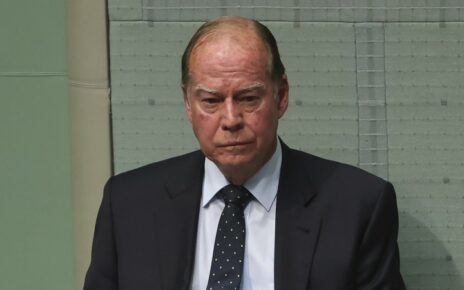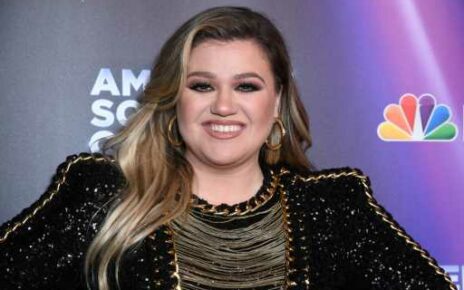WHEN you're young and free, it might feel like you have all the time in the world to start thinking about a family.
Most of us have a rough idea of how many children we would like – but sometimes life doesn't always go to plan.

Our jobs, social commitments and even fertility could get in the way – as we never know just how long it might actually take to get pregnant.
That's why if you're serious about starting a family, then you might need to consider using other methods.
Experts have revealed that using a scientific equation could help you achieve your goals when it comes to starting a family.
Experts at Erasmus University Medical Center, Netherlands, created a mathematical model that aspiring parents can use to work out when they should start trying for a baby.
Read more on parenting

Georgia Kousoulou on why she isn’t pressuring herself to lose her baby weight

I’m a mom – the simple phrase I use to stop my toddler’s tantrums instantly
For couples, it’s a useful tool to know when to stop using contraception.
For singletons, it may come as a bit of a shock to discover you should have started trying five years ago for your brood.
The tool reveals the age that the female in a relationship should be for the best odds of having one, two or three kids.
That’s because age is the single biggest factor affecting a woman’s chance to conceive and have a healthy baby.
Most read in Health

Warning as sleep conditions raise risk of deadly cancer and blood clots

New hospital rules to come into play today – are YOU affected

The 3-step plan to boost your manhood – according to the NHS

Urgent warning to parents to run taps for two minutes
It starts to decline earlier than for men, from the early 30s, before dropping rather sharply around 35.
Men’s fertility declines more subtly over a longer period of time from the age of around 40 to 45.
But women are gradually becoming older and older before they have their first child – from 23.7 in the 1970s to 28.9 today.
At the same time, the number of children per woman has dropped from two in 2000 to 1.58 in today’s time.
Some experts say women are not clued up enough about their fertility and the “ticking clock” – and this could leave them disappointed later down the line.
So much so that the students at one of Cambridge University’s colleges – Murray Edwards College – will now be given fertility seminars to hammer home the message.
The move was instigated by the new president Dorothy Byrne, 69, who wants career-driven women to be aware of the fertility drop in the mid-thirties.
Ms Byrne, who delayed motherhood herself before having a child through IVF at 45 years old, previously told The Sunday Times: “Young women are being taught that they all have to do well in school, get a degree, be successful in their career and be beautiful.
“The thing that is getting lost along the way is that you forget to have a baby, which I nearly did. We have swung too far one way.”
Ultimately, when you start popping kids out is your own choice.
But the 2015 Erasmus MC model, based on a simulation of 10,000 couples, might give you a rough idea of how where to set your expectations:
For one child
To have one child, women can wait until they are 41 to start trying for a baby naturally, the study says.
But this would give them just a 50 per cent chance of conceiving.
The NHS says about 84 per cent of couples will conceive naturally within a year if they have regular unprotected sex (every two to three days).
But it could be longer for older mums.
For the best odds of a baby (90 per cent), the study recommended age 32, while age 37 gave a 75 per cent chance.
For two children
If you envision two children running around your feet, you may want to start considering conceiving from the age of 27.
This would give you a 90 per cent chance of a couple of kids.
At the age of 34 this drops to 75 per cent, and at 38 it goes to 50 per cent.
For three children
The study said if you want three kids, you should start trying at the age of 23 years old.
If that sounds terrifyingly young, you’ll be pleased to know there is still a 75 per cent chance you’ll have a trio if you start from the age of 31.
The odds drop to 50 per cent from the age of 35.
IVF for a helping hand
In all scenarios, IVF pushed back the age at which women could start considering a family.
It's one of many treatment options to help those with fertility problems achieve pregnancy.
Women who want three kids could still achieve this if they started trying at 28 years old with a little help from IVF.
However, IVF can’t be relied upon, given that the NHS does not offer IVF to everyone.
Guidelines state it can only be given to women under the age of 43 who have been trying to get pregnant through regular unprotected sex for 2 years, or who have had 12 cycles of artificial insemination – another type of fertility treatment.
Read More on The Sun

I’m a baby name pro – the names at risk of going extinct

People have learnt where the phrase ‘cats have nine lives’comes from
But decisions end up being made by local NHS groups.
It can cost thousands of pounds to pay for IVF privately – up to £5,000 for just one shot.
Source: Read Full Article

